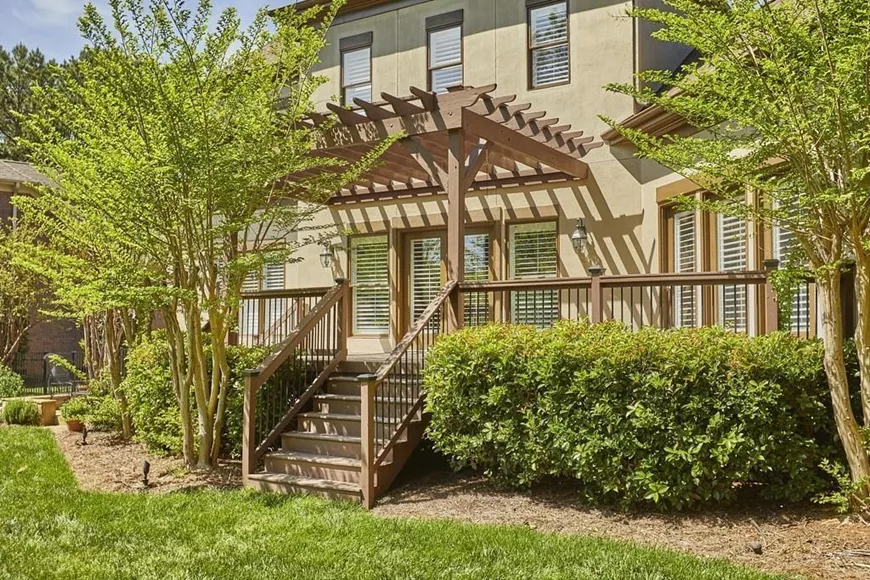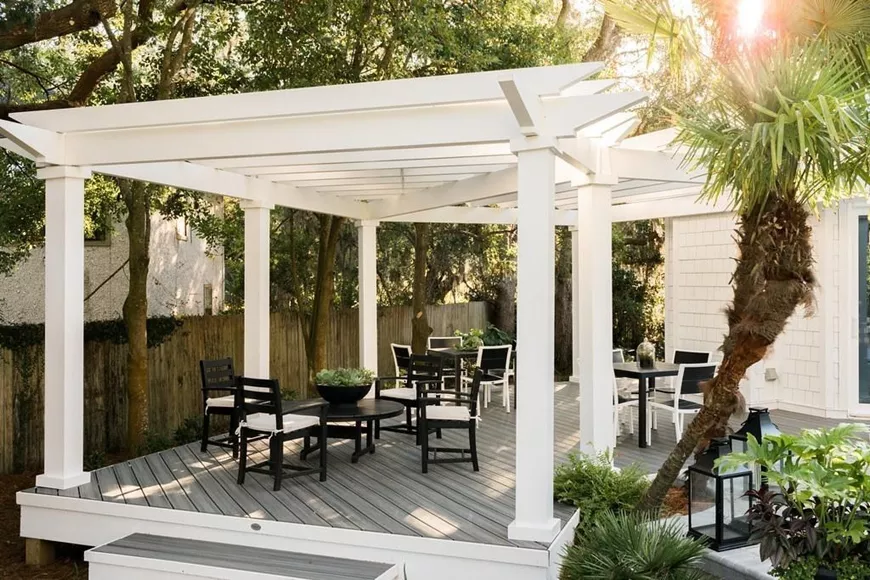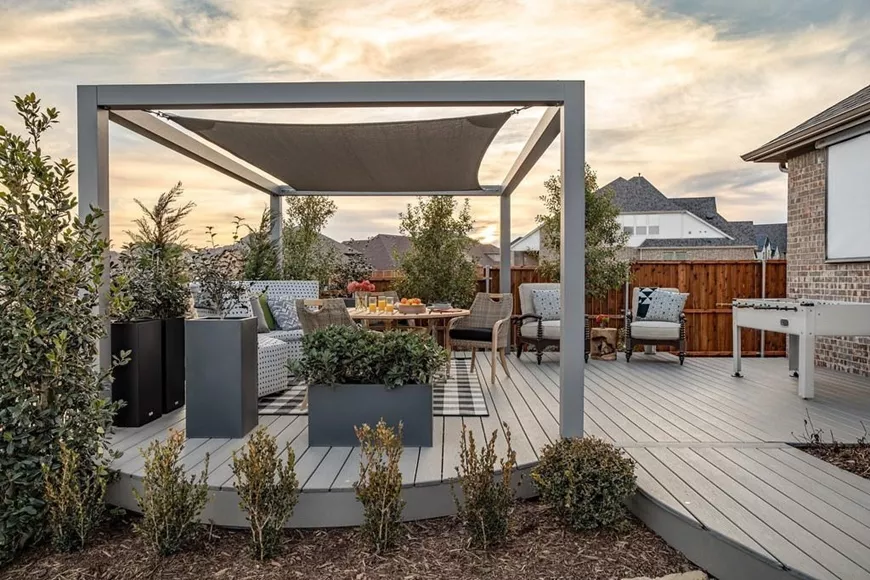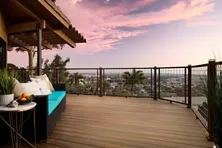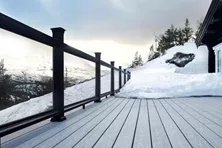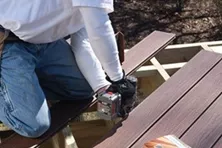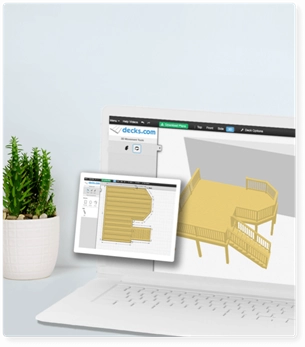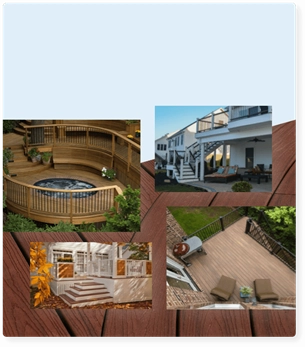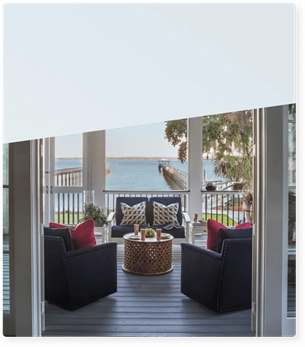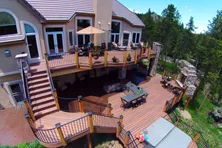How to Build a Pergola
Pergolas have become a popular backyard fixture in recent years. These stately structures add character to an outdoor area, and can also provide shade, as well as enhance the curb appeal of your home. Building a pergola can be an easy project for even novice DIY-ers who want to add a stately, yet inviting element to their backyard.
What is a Pergola?
A pergola is a tall outdoor structure with several beams supporting a decorative roof. The roof can be used to hold screening, fabric, tarp, plant-life or similar coverings. The purpose is to serve as a decorative focal point in a backyard, but they can also provide functional shade.
Helping to shape an outdoor space, a pergola can generate a distinctive environment which simultaneously gives the feel of the indoors meeting the outdoors. With many different possible designs, pergolas can be used to define a passageway, add a focal point, cover a walkway, provide shade, or otherwise enhance an area. It takes some preparation to build your own DIY pergola, but it’s nothing that an amateur can’t handle.
Tools for Building a Pergola
Learning how to make a pergola isn’t difficult. To get started building a pergola, you’ll need several tools and materials, including:
- Caulk gun
- Gravel
- Hammer
- Square & straight edge
- Putty knife
- Safety glasses
- Shovel & Auger
- Stepladder
- Jigsaw
- Level
- Tape measure
- Cordless drill
- Hole saw kit
- Circular saw
- 3” lag bolts
- 1 ½” galvanized nails
- 3” galvanized screws
- 4” x 4” posts
- 2” x 10” boards
- 2” x 6” boards
- 2” x 4” boards
Precisely how much lumber you’ll need will depend on the space you want to fill. As for the type, pressure-treated lumber is a cost-effective choice for building a pergola, but there are many alternatives that make sense, such as composite. Browse through our collection of pergola ideas and designs for inspiration!
Building A Pergola: Step-By-Step
The first thing you’ll need to do is determine the placement of the pergola. Learning how to build a pergola attached to the house or on your deck is a little different from learning how to build a pergola that sits on the ground in your backyard. However, you would only need minor modifications to alter it to better suit your unique circumstances.
In this instance, we’ll cover the easier DIY project of building an unattached pergola that can be built around a concrete patio or as a freestanding structure in your backyard.
Step 1 – Installing the Posts
The easiest way to build a freestanding pergola is to start with post holes. Use an auger to dig two post holes per row, each hole 8’ apart. The depth of the holes should match regional building codes pertaining to the frost line. In most cases, that means 24” holes with a width of 9”.
Add 2” of gravel to the bottom of each hole to allow for drainage. Then place your posts. Ensure each post is level before attaching a 2” x 4” brace to keep them in position. Mix and pour cement, then allow it to dry.
For those interested in how to build a pergola on a concrete patio, it’s possible to skip this step, and instead use post anchors drilled into concrete or decking with lag bolts and decking screws.
Step 2 - Attaching the Support Beams & Crossbeams
Place the top beams on the posts you’ve installed. Screw them into position for a temporary hold, and then secure them with a pair of lag bolts once each board has been properly aligned.
Use your 2” x 10” boards to create joist beams for the top of your pergola. Space them evenly on the top of your pergola, each with a 10” overhang. Secure the rafters with 4x4 blocks between each support beam, and clamp the joist beams into position. Pre-drill the beams for attachment, and then connect with 3” lag bolts.
Step 3- Place Decorative Pieces
Cut stringers from your 2” x 6” boards to overhang on the joist beams. Use a jigsaw to cut a curved or straight lattice structure to place atop the pergola. Create a lattice structure with overlapping beams that have even, perpendicular spacing. Connect each beam at an angle using toenailing. Once your lattice is ready, screw it into position against the support beams on each side of the pergola.
It’s also possible to skip this step by purchasing prebuilt architectural lattice or other prebuilt elements. For example, people who want to mix DIY with professional design can save a great deal of time with Trex Pergola Kits.
Decking Patterns
Step into the world of deck design and push the limits of your imagination with our collection of deck patterns and ideas. From classic single-width and diagonal layouts to intricate herringbone and chevron designs, we illustrate the wide range of patterns that will unlock your creativity.
Brown Composite Decking
Get inspired by our collection of brown composite decking ideas and images. Find the best brown deck designs to fit your home and personal style with Decks.com.
5 Ways to Use Your Deck In The Winter
Hoping to get use out of your deck all year long? Discover these helpful deck ideas to keep your deck warm and cozy in cold winter weather at Decks.com.
IRC Code Requirements For Decks
Residential properties have certain code requirements that must be met before building a deck known as the IRC. Learn more about IRC building codes for decks at Decks.com!
IBC Requirements For Decks
The International Building Code (IBC) regulates deck additions attached to commercial buildings. Learn how IBC requirements may affect your project at Decks.com.
Questions To Ask Your Deck Contractor
The quest to find the right contractor to complete your decking project can feel overwhelming and stressful. Learn more about what questions you should ask before hiring a contractor on decks.com
More Helpful Resources
Explore Articles by Topic
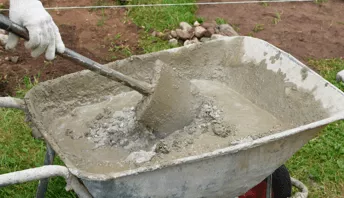
Footings
Information related to installing frost footings for decks
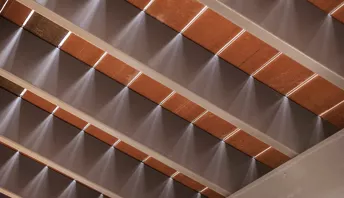
Framing
Learn structural framing methods
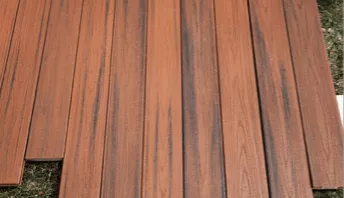
Decking
Learn about wood and composite decking materials
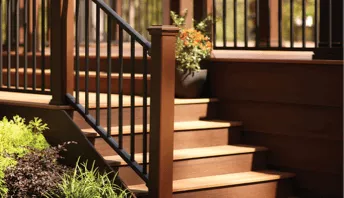
Stairs
An in-depth look at the complex issue of how to build stairs
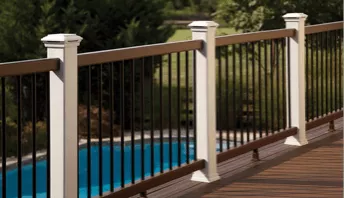
Railings
How to install guardrails and handrails to meet IRC code
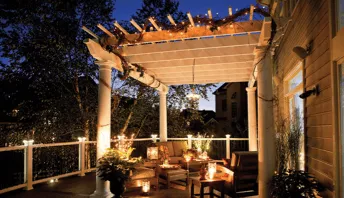
Features
An overview on water drainage, benches, planters and lights
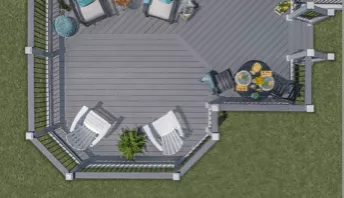
Design
The basics of deck design
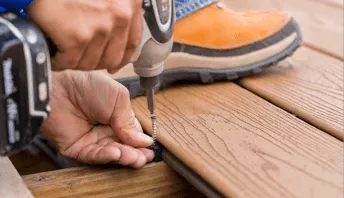
Planning
Learn about permits and working with contractors
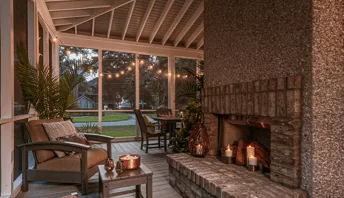
Porches & Patios
Build a covered deck to enjoy all seasons
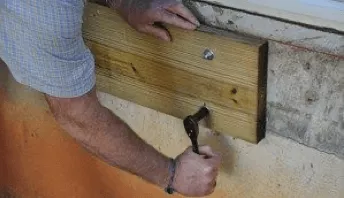
Ledger
Proper attachment techniques
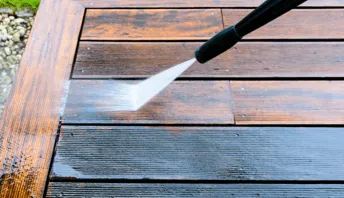
Care
Maintain your deck to maintain your investment
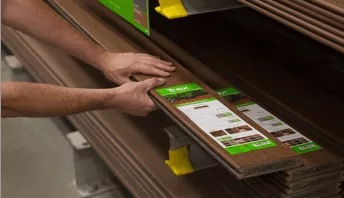
Materials
An overview on water drainage, benches, planters and lights
Beautiful Backyard Outdoor Shower Ideas
Transform your outdoor space into a serene retreat with our guide to inspiring outdoor shower ideas and designs. Discover the versatility of portable, stand-alone, and stationary showers, and explore creative styling tips using materials like stucco, concrete, and natural elements. Weigh the pros and cons of outdoor showers and learn when it's best to consult a professional for installation.
Deck Railing Designs
Learn about the newest and most stylish deck railings on the market. Browse pictures of wood, metal, glass, composite and cable rail systems.
Space Planning
Learn how to design a deck to provide enough space for your furniture and different uses.
How to Grade Your Yard
Master the art of yard grading! From choosing the right slope to understanding the costs, this guide covers everything you need to achieve a properly graded yard that protects your home and enhances your landscape.
How to Find & Choose a Deck Contractor
Finding a good contractor to build your deck doesn't have to be hard. Learn how to find a contractor and what to expect when working with one at Decks.com.
Questions To Ask Your Deck Contractor
The quest to find the right contractor to complete your decking project can feel overwhelming and stressful. Learn more about what questions you should ask before hiring a contractor on decks.com
Explore Articles by Topic

Footings
Information related to installing frost footings for decks

Framing
Learn structural framing methods

Decking
Learn about wood and composite decking materials

Stairs
An in-depth look at the complex issue of how to build stairs

Railings
How to install guardrails and handrails to meet IRC code

Features
An overview on water drainage, benches, planters and lights

Design
The basics of deck design

Planning
Learn about permits and working with contractors

Porches & Patios
Build a covered deck to enjoy all seasons

Ledger
Proper attachment techniques

Care
Maintain your deck to maintain your investment

Materials
An overview on water drainage, benches, planters and lights




